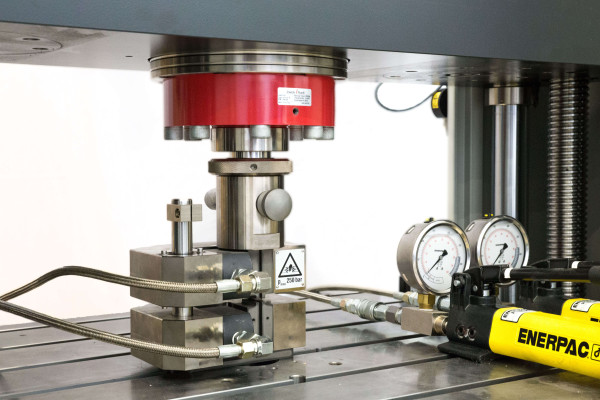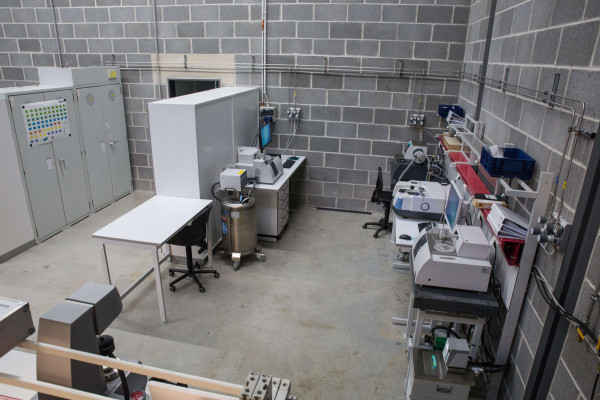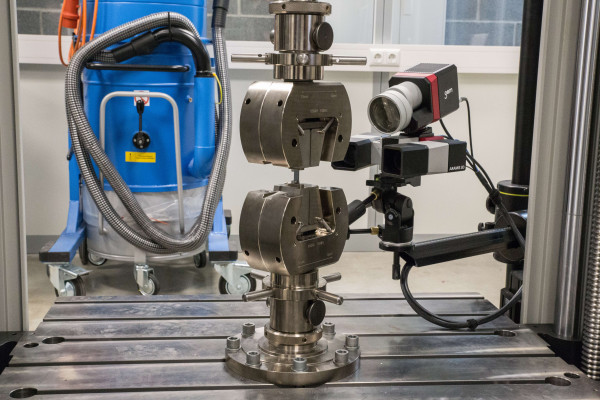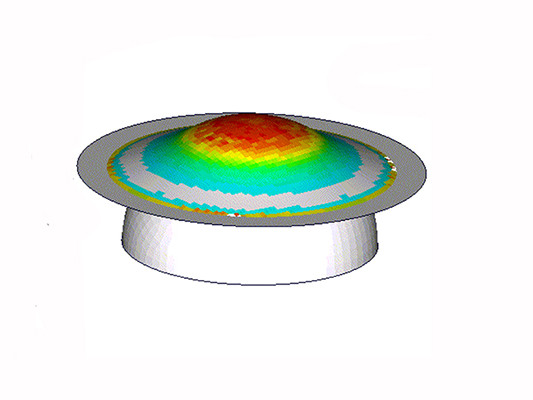Material testing, material cards, material data sheets and compliance - milestones for new sustainable developments
We are surrounded by materials at all times and everywhere. From sports equipment to aircraft, materials play a significant role. Structural strength, durability or haptics – properties that define product safety and quality perception. In the automotive industry specifically, we can look back on many years of experience at ARRK Engineering.
As a capable partner, we support the development of components or subsystems from the material perspective; from material selection and static and dynamic material testing, right through to comprehensive identification of characteristics, and specification of CAE material cards used by us or our customers in structural CAE design.
In addition, we help automotive manufacturers and their suppliers to comply with statutory directives in the field of material restrictions and material compliance. We take complete responsibility for compiling material data sheets from all suppliers, evaluating them until approval and creating at the end material balances as the basis for homologation approval by using complex macro-programming.
Besides, we evaluate resource efficiency and/or CO2 impact along a component or vehicle life cycle, from product creation, through use, to recycling by processing high quality Life Cycle Assessments (LCA).
Furthermore, we accompany companies in their sustainability analysis and their way to sustainable innovations.

Our strengths
The expertise in our materials area ranges from support in material selection to the evaluation of the material in the component from a physical, legal and sustainability point of view. To assist product development from all material-related perspectives, we provide established expertise in the following competence areas:
Material controlling and compliance assurance
We take over the compliance with legal substance regulations for components or vehicles for our customers with regard to their availability and demonstrability, in order to ultimately enable a type approval.
Moreover we offer the OEMs and their suppliers a long standing expertise in the evaluation and creation of material data sheets (MDS) for the development phase, in consideration of the actual materials and chemicals legal standards and requirements (REACh, EU end of life vehicles directive ELV, CQC, etc).
The long-term experiences in a professional elaboration of databases and an established knowledge of the common platforms (IMDS, CAMDS, SCIP...) enables us to handle projects independently and completely in terms of material conformity, from pre-development to homologation.
In addition, we are certified as an official IMDS consulting partner of DXC, reflecting our proven expertise and extensive experience. We support in designing internal IMDS processes and developing a comprehensive solution based on individual requirements and resources.
- Supplier management
- Evaluation and creation of material data sheets
- Preparation of material balances
- Report writing for REACh declaration §33 and obtaining homologation release
- IMDS Training and Consulting
- Filling of the SCIP and CQC databases
- Tracking of legislative changes and identification of affected pollutants in the vehicle
- Change management for material restriction cases
- Creation of customer-specific programming and automation
Beyond the materials perspective, we also specialize in sustainability management.
All from one source - from testing to simulation
Over the years, we have acquired extensive expertise in the creation of material cards to conduct robust simulations. We commence with a meticulous examination of materials, followed by the targeted preparation of specimens for various experiments.
Our highly qualified CAE experts calibrate material models based on test results, aiming to reflect realistic material behavior.
Actual components undergo mechanical testing to optimize the quality of our simulation models at the component level. We record tests from various perspectives to accurately observe phenomena.
Finally, we validate our material models by comparing simulation results with actual test outcomes. This enables intelligent and swift development of automotive components using our informative material cards.
Material testing
To obtain sufficient information on existing material and evaluate its suitability for use in the development of a component, numerous tests are required. We execute these tests in accordance with international test standards based on ISO 17025 processes.
Impressions of our material laboratory



Thermal analysis
- Dynamic differential calorimetry
- Thermogravimetry
- Rheology
- Dilatometry
- Infrared spectroscopy
- Activation energy, residual reaction, melting temperature
- Filler content, incineration temperature
- Gel point, viscosity
- Thermal expansion, vibration characteristics
- Infrared spectrum of absorption, emission, Raman scattering
Dynamic tests
- Tension
- Compression
- Penetration
- Dynamic mechanical analysis
Quasi-static tests
- Tension
- Compression
- Bend
- Custom solutions
- Derivatives of force/displacement measurements
- Direction-dependent modules
- Stress
- Elongation
- Strength
- Maximum deformation
Overview of our material testing standards in use - please click
Tension
- DIN EN ISO 527 -2
- DIN EN ISO 527 -3
- DIN EN ISO 527 -4
- DIN EN ISO 527 -5
- DIN EN 2561
- ASTM D 3039
- DIN EN 2597
Compression
- DIN EN ISO 14126
- ASTM D 6641
Bending
- DIN EN ISO 14125
- DIN EN ISO 178
- DIN EN ISO 179-1
- ASTM D 790M
Shear
- DIN EN ISO 14130
- DIN EN 2563
- ASTM D 2344
- ISO 14129
- DIN EN 2243-1
- DIN EN 2243-6
- ASD-STAN prEN 6060
- DIN 65148
Fracture mechanics
- ISO 15024
- ASD-STAN prEN 6033
- ASD-STAN prEN 6034
- ASTM D 5528
- ASTM D 7905
Sandwich
- ASTM C 273
- DIN 53294
- ASTM D 7249
- ASTM C 364
You can also find a detailed document with all our material testing standards for download here.
Material characterisation in CAE
Through close collaboration between our materials laboratory and the simulation department, we can offer our customers a comprehensive solution and adapt both the material model and the test programme to the needs of our customers. With this procedure, we achieve forecast-capable material cards, which can for example be used to predict crash behaviour via simulation.
- Selection of a suitable material model in Nastran, Abaqus, LS-Dyna, PAM-Crash or Radioss
- Modelling of elastoplastic behaviour and failure response according to triaxiality, strain rate and temperature
- Characterisation of materials such as for example metals, plastics, CFRP, GFRP or foam
- Characterisation of weld, screw, riveted and adhesive joints
- Project coordination from test programme design to output of the finished material card


